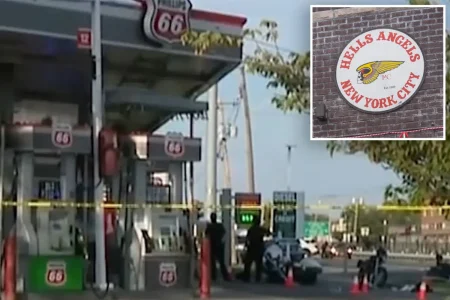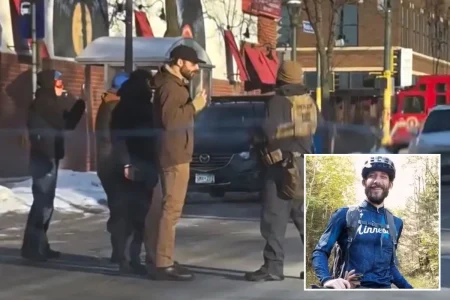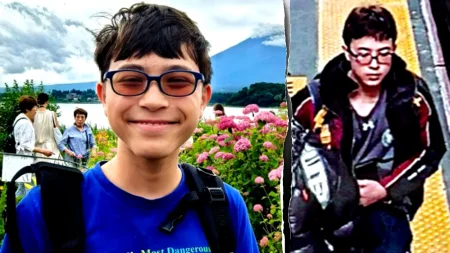Ukraine Peace Talks: Washington and Kyiv Report Progress on Diplomatic Path Forward
Diplomatic Momentum Builds as Peace Proposal Discussions Deemed “Highly Productive”
In a significant development that could potentially reshape the trajectory of Europe’s largest armed conflict since World War II, officials from Washington and Kyiv have characterized recent discussions about a proposal to end the Russia-Ukraine war as “highly productive.” While specific details of the peace framework remain closely guarded, the positive characterization of these talks represents one of the more promising diplomatic signals since Russia’s full-scale invasion began in February 2022.
The discussions, which reportedly took place through secure diplomatic channels over several days, involved senior officials from the Biden administration and Ukrainian President Volodymyr Zelensky’s government. Sources familiar with the negotiations indicated that the talks centered around a comprehensive peace proposal that addresses territorial integrity, security guarantees, and a potential roadmap for de-escalation. “These aren’t just perfunctory exchanges of established positions,” said a senior U.S. diplomat speaking on condition of anonymity due to the sensitivity of ongoing negotiations. “There’s genuine engagement with substantive ideas that could eventually form the backbone of a lasting peace agreement.”
Complex Geopolitical Landscape Shapes Peace Negotiations
The cautiously optimistic tone from Washington and Kyiv comes against a backdrop of shifting battlefield dynamics and evolving geopolitical calculations. After more than two years of brutal conflict that has claimed tens of thousands of lives and displaced millions, both sides appear to be reassessing their strategic positions. Military analysts note that the war has settled into a grueling war of attrition along a largely static front line in eastern Ukraine, with neither side making dramatic territorial gains in recent months despite substantial casualties.
This military stalemate coincides with other factors potentially creating a window for diplomatic progress. The approaching U.S. presidential election has intensified pressure on the Biden administration to demonstrate tangible progress toward resolving the conflict. Meanwhile, European allies have grown increasingly concerned about sustaining their economic and military support indefinitely. For Ukraine, the devastating toll on civilian infrastructure and growing humanitarian crisis has strengthened domestic voices calling for a negotiated settlement. “The convergence of these factors doesn’t guarantee a breakthrough,” explained Dr. Elena Korosteleva, Professor of International Relations at the University of Kent, “but it does create conditions where meaningful negotiation becomes more feasible than at previous points in the conflict.”
Critical Details Remain Unresolved as Negotiations Continue
Despite the positive characterization of talks as “highly productive,” substantial obstacles remain on the path to peace. Both Ukrainian and American officials emphasized that discussions would continue, suggesting that significant disagreements persist on fundamental issues. Chief among these challenges is the status of territories currently occupied by Russian forces, including Crimea and portions of eastern Ukraine. Previous peace overtures have faltered on this precise point, with Ukraine insisting on full territorial restoration and Russia refusing to relinquish its claimed annexations.
Security guarantees represent another formidable hurdle. Ukraine has consistently sought robust international security commitments to prevent future Russian aggression, potentially including expedited NATO membership or bilateral defense agreements with major Western powers. Russia, conversely, has long opposed Ukraine’s Western integration, viewing it as a redline security threat. “These aren’t merely technical details to be ironed out,” said Ambassador William Taylor, former U.S. Ambassador to Ukraine. “They strike at the core of each side’s conception of their vital national interests and security requirements.” Additional complications include accountability for alleged war crimes, reconstruction funding, and the status of Western sanctions against Russia – each representing potential dealbreakers in the fragile diplomatic process.
Regional and Global Stakeholders Watch Developments Closely
The diplomatic engagement between Washington and Kyiv has drawn intense attention from regional and global stakeholders whose interests are deeply intertwined with the conflict’s outcome. European nations, particularly those bordering Russia or Ukraine, are monitoring developments with heightened interest. Poland, the Baltic states, and other frontline NATO members have consistently advocated for a firm stance against Russian aggression, fearing that any perceived appeasement could embolden future revisionist actions. Conversely, countries like Hungary and Slovakia have more recently signaled openness to compromise solutions that could expedite an end to hostilities.
Beyond Europe, global powers including China have positioned themselves as potential mediators. Beijing has attempted to leverage its influence with Moscow to portray itself as a responsible global stakeholder while simultaneously deepening its economic and diplomatic ties with Russia. “What we’re witnessing is a complex diplomatic dance involving dozens of countries with varying degrees of influence and divergent strategic objectives,” noted Dr. Sarah Kreps, Director of the Tech Policy Institute at Cornell University. “The U.S. and Ukraine must balance their bilateral discussions with broader multilateral considerations, recognizing that any sustainable peace will require buy-in from this wider constellation of stakeholders.” This diplomatic complexity is further compounded by the role of international organizations like the United Nations, which has repeatedly called for respect for Ukraine’s territorial integrity while struggling to implement effective conflict resolution mechanisms.
Path Forward: Balancing Optimism with Pragmatic Expectations
As discussions continue between Washington and Kyiv on the peace proposal, both governments face the delicate task of managing expectations. The characterization of talks as “highly productive” reflects a deliberate communication strategy aimed at signaling serious diplomatic engagement without overpromising outcomes. This measured optimism acknowledges the genuine progress made while recognizing the considerable obstacles that remain before any comprehensive peace agreement could be reached.
For Ukrainian citizens enduring daily hardships amid ongoing Russian attacks on civilian infrastructure, the prospect of diplomatic progress offers a glimmer of hope tempered by deep skepticism about Russian intentions. Many Ukrainians remain profoundly distrustful of Russian commitments following the collapse of previous agreements, including the Minsk Protocols. Similarly, Western publics increasingly divided over continued military assistance to Ukraine are watching for signs that their substantial investment might yield a sustainable resolution. As one senior European diplomat observed, “The road to peace will likely be neither short nor straight. It will require patience, strategic clarity, and unwavering support for Ukraine’s sovereignty while maintaining channels for dialogue.” In the coming weeks, the international community will be watching closely to see whether these “highly productive” discussions translate into concrete steps toward ending a conflict that has redrawn Europe’s security architecture and reshaped global geopolitics for years to come.







